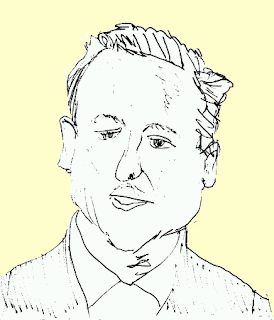As can be seen, although I am a religious non-realist, I don't go the full length of Cupitt's all-encompassing non-realism. My view is that although there are language games Wittgenstein style, there are different demands regarding data within the different language games. In many of the arts the demand is virtually nil, and this must be so with theology, except where theology treads into the language games of other subjects. History is an exception, and has developed rules to do with primary sources and then the difficulties of using secondary sources: The Jesus Seminar, for example, is an exercise in using the secondary sources of the five main gospels (Matthew, Mark, Luke, John, Thomas - the latter included because it has material from the earliest sayings sources). Science has more rigorous rules of data, and this is why the Darwinian paradigm is ever strengthened by new data that Darwin did not know (for example, the early genetic switching evidence that shows that the eye has developed once through all eye-bearing species) and why the astrophysics paradigm is in a mess, demanding new evidence or a rewrite. As I write, the Large Hadron Collider is not an exercise in study skills and essay writing, but about data that supports or contradicts the existing paradigm.
Thus, whereas religion, like art, can be creative and expansive, the same cannot be said for other disciplines. Cupitt is sensible in
 that he sticks to the main narratives, but he could be a Radical Orthodox Christian, say, in a piece of postmodern inventiveness. No problem with that, so long as it doesn't encroach on the social sciences - and it does.
that he sticks to the main narratives, but he could be a Radical Orthodox Christian, say, in a piece of postmodern inventiveness. No problem with that, so long as it doesn't encroach on the social sciences - and it does.I thought that, with Jesus and Philosophy (2009), Cupitt had shifted more to my position: after all, he was piggybacking on historians and their work. There was a bit of semi-realism in their work and in his. Don's long history of anti-Platonism does not mean he has to whole hog it all the time: what's wrong with Christianity is that it is not historical by method and behaves as if it is a given truth straying into history and science; its alternative view of the world does not hold up. It can be creative and mythic, but it does not supply information.
My other objection is Cupitt's claim to autological thinking, that is direct thought, a sort of Occam's Razor of understanding. The trouble is, he has to relate that to the tradition, and he draws on the borrowed notion of "archaeology" as the tradition. Well, that's just heterological thinking by another means. At some point you have to live now and think now and leave archaeology to Tony Robinson and the Time Team.
The review is available in .PDF format of the original essay, in case an approached theology publication wants to publish it, and it has some grammatical corrections in it, and is located on my website under Learning - Religion - Radicalism. I always recommend PDF-XChange as a viewer because of The Typewriter function that effectively allows it to be a form filler and editor (and no need to pay for an upgrade for more facilities - partly why I stick to my older version, although having taken another look I might change my mind).




















